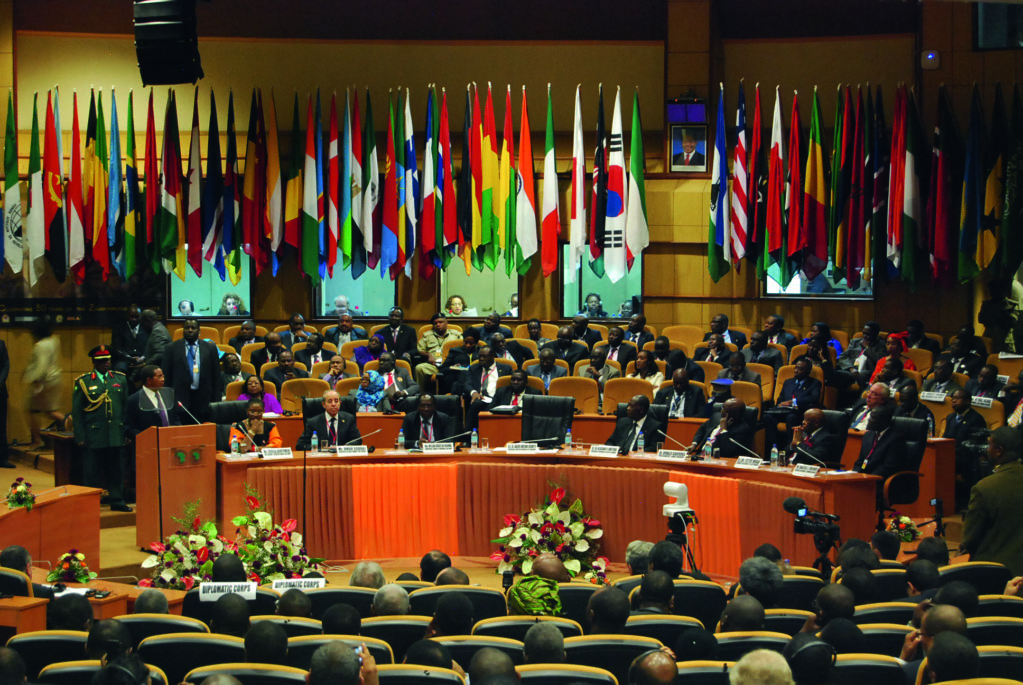How times have changed. When I covered my first African Development Bank annual meeting nearly 20 years ago, development conversation was often dominated by apartheid—how the last bastion of white rule was impeding the progress of the continent.
Dominant, too, were the other issues frustrating African progress: political instability in the west and east; soldiers in power; corruption; poor governance; poverty etc. Back then aid flows were certainly bigger than foreign direct investment; fewer countries boasted positive real growth rates, let alone expansion at near double digits; elections were at a premium and even rarer—peaceful change in government. It was so dark that five years later The Economist magazine weighed in with its now infamous ‘Hopeless Africa’ moniker.
Now, not only do opposition parties assume power from a ruling party like they did in Zambia last year but you can count on your two hands, the number of countries where democratic elections have become the norm. According to The Economist, all but Mauritius peacefully changed a government or president at the ballot box in the three decades since independence in the 1960s. However, once Benin set the trend in 1991, it has happened more than 30 times.
“We are here to tell the world: African investment opportunities are the ‘low hanging fruit’, part of the solution to today’s global problems,” said Donald Kaberuka, the head of the African Development Bank, at the opening ceremony of the 2012 meetings.
Global consultancy McKinsey & Company in its much lauded Lions on the Move research says 27 of the continent’s 30 biggest economies have been expanding at a faster pace since 2000. These days, The Economist says that between 2010 and 2011, seven of the world’s 10 fastest growing economies were African.
Loading...
The reforms of the 1990s—the same ones The Economist didn’t see—are beginning to pay off. To be fair they did change tune—in December 2011, that headline had changed to ‘The Hopeful Continent’. The reforms bore fruit at a most opportune time with the rise of the dragons in the east—China and India—happening at the same time that Europe began to decline. All this, illuminated Africa’s investment credentials.
“I have no doubt in my mind that Africa is poised to become the world’s new economic powerhouse for the 21st century,” says Tanzanian president, Jakaya Kikwete. “With its endowment in both natural and human resources, the pursuit of sound economic policies, and with democracy, good governance, respect for the rule of law and human rights being entrenched, nothing will stop Africa from getting there.’’
The 2012 meetings demonstrated just how far Africa has come. It was hosted by Tanzania’s tourism capital, Arusha, at the foot of Mount Kilimanjaro. The theme was taking advantage of the here and now; ‘Africa and the Emerging Global Landscape:
Challenges and Opportunities’. Over five days, seminars, bilateral discussions and workshops discussed everything from the lessons learnt from civil wars, droughts and food security to good financial governance. Here was the evidence, if any more was needed, that Africa’s time has come. The bank’s financials themselves tell the story. While the bank was near collapse in 1995, the AfDB’s financial health is now strong. It remains Africa’s sole AAA-rated institution by all three global rating agencies—meaning it can borrow at lower costs than France, Spain and Portugal.
Last year it approved $5.66 billion in loans, grants and equity investments etc., up 42% from the prior year. But the bank’s value cannot be measured in the money it lends alone. It is an important player in building African institutional capacity and technical capacity which plays a role in fragile states and is also helping the continent to achieve food security. In short, the mandate has moved beyond the original focus on infrastructure envisaged by its founding fathers in 1963.
But caution remains a watchword for Kaberuka, who is now serving his second and last term.
“There are heavy dark clouds on the horizon—the lagged effects of the recession in Europe, the uncertainty about how the BRICs will fare in 2012, and hence the implication for investment flows and demand for our exports. Also, in 2008 when the financial crisis was at its apex, Africa was in a much stronger position to withstand the external shocks. This time round, the resilience is not as robust, the shock absorbers, the fiscal space is weaker,” says Kaberuka.
However, with projections of a near doubling of the continent’s combined GDP to $2.6 trillion by 2020, with consumer spending forecast to increase by 62% to $1.4 trillion over the same period, in key sectors like consumer products, construction, telecoms, financial services and mining; it’s hard to temper optimism that the diamond in the rough may be ready to shine.
“While Africa’s challenges are well-documented, there is an increasing recognition that the continent is on an upward trajectory; economically, politically and socially,” says Ernst & Young in its 2011 Africa attractiveness survey.
From hopeless to hopeful, I wonder what The Economist’s headline will be a decade from now?
Loading...
